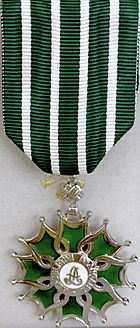Graham Robb facts for kids
Quick facts for kids
Graham Robb
FRSL
|
|
|---|---|
| Born | June 2, 1958 Manchester, England
|
| Education | Royal Grammar School |
| Alma mater | Exeter College, Oxford, Vanderbilt University |
| Occupation | Author, critic, historian |
| Known for | Biographies of French authors, cultural history of France, Celtic studies |
| Spouse(s) | Margaret Hambrick (m. 1986) |
Graham Macdonald Robb (born June 2, 1958) is a British author and historian. He is known for writing about French history and famous French writers. He is also a Fellow of the Royal Society of Literature (FRSL), which is a special honor for writers in the United Kingdom.
Contents
Early Life and Education
Graham Robb was born in Manchester, England. He was a very good student and went to the famous University of Oxford. There, he studied Modern Languages and graduated with the highest honors.
After college, Robb decided to become a teacher. He later continued his studies at Vanderbilt University in the United States, where he earned a PhD in French literature. A PhD is the highest university degree a person can get. He then returned to Oxford University for a few years to do research before becoming a full-time writer.
A Career in Writing
Robb became famous for writing biographies, which are books about people's lives. He wrote about famous French authors like Victor Hugo, Arthur Rimbaud, and Balzac. His books were very popular and won many awards.
Major Awards and Honors
- Whitbread Best Biography Award: In 1997, he won this award for his book about Victor Hugo.
- Best Books of the Year: His biographies on Hugo, Rimbaud, and Balzac were all named "Best Books of the Year" by The New York Times.
- Duff Cooper Prize: He won this prize in 2007 for his book The Discovery of France.
- Chevalier of the Ordre des Arts et des Lettres: In 2009, the French government gave him this special honor for his work on French culture.
- Medal of the City of Paris: He received this medal in 2012 for his book about the history of Paris.
In 1986, Robb married Margaret Hambrick, who is also an academic.
The Lost World of the Celts
One of Robb's most interesting books is The Discovery of Middle Earth: Mapping the Lost World of the Celts, published in 2013. In this book, he shared a new theory about the ancient Celts.
Robb's Theory
Robb suggested that the Celts, an ancient group of people in Europe, were expert mapmakers. He believed they designed their lands using a system of lines based on the sun's position during the solstices (the longest and shortest days of the year).
According to Robb, the Celts used this network of lines to decide where to build towns, where to fight battles, and even which paths to follow when they moved. He studied ancient roads, maps, and art to find evidence for his idea.
A Historical Debate
Robb's theory is exciting, but not all historians agree with him. Some experts think there isn't enough solid proof. They say that the connections he found might just be coincidences. For example, historian Ian Morris pointed out that Robb sometimes chose locations for ancient sites that fit his lines, even if other locations were more likely.
This kind of debate is common in history. Historians often look at the same evidence and come up with different explanations. Robb's book started a fascinating conversation about the skills and knowledge of the ancient Celts.
See also
- Royal Society of Literature


